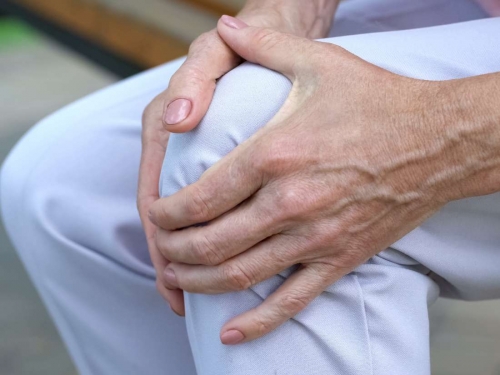Article: PRINT Causes Of Morning Stiffness From Arthritis

Post by:Sandy
Peter Dazeley/Getty Images
Feeling stiff when you first wake up in the morning is a common problem associated with arthritis. Morning stiffness causes you to hurt all over as you get out of bed. As you take your first steps, your joints and muscles ache so much, you want to crawl right back into bed. In fact, morning stiffness can be the most severe pain you feel all day and it can impair or interfere with your ability to function and perform routine tasks and activities of daily living.
Paying attention to the duration of your morning stiffness (how long it lasts) will help both you and your doctor decide how to deal with it. Morning stiffness that lasts more than an hour – and in some cases up to several hours – is characteristic of rheumatoid arthritis or other inflammatory types of arthritis. Morning stiffness that is less prolonged (typically a half hour or less) is more likely to be osteoarthritis or another non-inflammatory, musculoskeletal condition. In spite of having a regular treatment regimen, morning stiffness is a persistent problem for many people with arthritis.1
Causes of Morning Stiffness?
One theory regarding the cause of morning stiffness is referred to as the gel phenomenon. The gel phenomenon essentially means that stiffness develops after long periods of sitting or inactivity. This is characteristic of non-inflammatory conditions.1
Some researchers note that morning stiffness is a circadian symptom that is not fully understood. Some suspect there may be insufficient cortisol released in the body during the night to offset elevated pro-inflammatory cytokines, such as IL-6. But, waking up in the middle of the night to take corticosteroids or other anti-inflammatory medications to reduce the inflammation would be inconvenient and not without its own side effects.2
Tips for Dealing With Morning Stiffness
There actually has been a modified-release prednisone tablet developed. Taken at approximately 10 pm, the tablet delivers a dose of prednisone to the body about 4 hours later, which is considered the best time to suppress IL-6. Some clinical studies published in 2011 suggested that this is the best way to manage morning stiffness.3 The drug – called Lodotra in Europe where it was approved before the US approval – performed well in studies. The FDA approved it in 2012 under the name Rayos.4
If you have inflammatory arthritis, managing morning stiffness involves working with your doctor to control the inflammation. No matter what type of arthritis you have, here are some tips which may help:1
Sleep in a position that supports your joints.
Be sure that your bedroom or sleep environment is warm. Dial-up a comfortable temperature on the thermostat and use heating pads and electric blankets for extra warmth.
Before getting out of bed, do simple stretching exercises in bed to limber up.
When you first get up, take a hot shower. Standing under the warm water will relax you.
Do a few more exercises once your muscles begin to loosen up.
Easier said than done, but when you go to bed, let go of work, stress, or any problems. Consciously plan to escape stress to help reduce tension and allow your body to relax before falling asleep.
If possible, delay your activities until later in the day. If you work, consider requesting a later start time.
A Word From Verywell
Morning stiffness affects your level of frustration, ability to work, and overall quality of life. 5Think of it on a smaller scale. How do you feel when you wake up with a severe toothache? Imagine that same discomfort throughout your body. You would do anything to make it stop, right? You need to get on with your daily routine. Imagine, too, if this happened day after day.
Make every effort to reduce your morning stiffness. Try different things to see what works best for you. Discuss it with your doctor. Even a little bit of effort (e.g., staying warm, exercise, sleep position) goes a long way. If morning stiffness is a huge problem for you, you may need to consider changes to your medication regimen.
Comments
Post a Comment